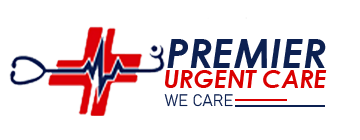
HEAD & NECK PAIN

Symptoms of neck pain include:
-
Muscle tightness
-
Muscle spasms
-
Headache
-
Reduced range of motion when moving the head
-
Pain that worsens when holding the head in one position for long periods of time
It’s important to see a doctor if neck pain:
-
Becomes severe
-
Persists for several days without relief
-
Radiates to the arms or legs
-
Is accompanied by headache, numbness, weakness, or tingling
Head pain, or headache, may feel like:
-
Migraine – throbbing that begins on one side of the head and leads to nausea or sensitivity to sound and light
-
Sinus headache – steady pain behind the face that worsens when bending forward
-
Tension headache – dull, steady pain that feels like a band being tightened around the head
-
Cluster headache – persistent pain concentrated on one side of the head that feels like burning, piercing, or throbbing
It’s important to seek medical help if you:
-
Experience a new type of headache you’ve never felt before
-
Have a high fever accompanied by nausea, severe pain, and a stiff neck
-
Feel drowsy with dizziness, vertigo, nausea, or vomiting after sustaining a head injury
-
Have recurring or painful headaches
Call 911 if you:
-
Experience a sudden severe headache accompanied by seizure, confusion, loss of consciousness, or change in behavior.
-
Experience a severe headache accompanied by vomiting, double vision, limb weakness, slurred speech, or difficulty swallowing
-

Neck pain may be caused by:
-
Muscle strains. Results from overuse or bad habits, like reading in bed or remaining hunched over a computer or smartphone.
-
Worn joints. Occurs when the cartilage between the vertebrae deteriorates and forms bone spurs.
-
Nerve compression. Results from herniated discs or bone spurs.
-
Injury. May be caused by auto collisions leading to whiplash.
-
Illness. Such as rheumatoid arthritis, cancer, or meningitis.
Head pain, or headaches, may be caused by:
-
Stress
-
Insufficient sleep
-
Fatigue
-
Hunger
-
Caffeine withdrawal
-
Weather changes
-
Certain foods and drinks
-
Sudden cessation of medications
-
Smoke inhalation
-
Certain smells
-
Bright light
-
Changes in estrogen levels for women
-
Certain medications
-
Food additives
-
Noise
-
Eye, neck, or back strain caused by poor posture
Secondary headaches may be caused by an underlying medical condition:
-
Disease of blood vessels in the brain
-
Head injury
-
High blood pressure
-
Infection
-
Medication overuse
-
Sinus congestion
-
Trauma
-
Tumor
-
At Premier Urgent Care, head and neck pain may be treated with injections and pain management techniques.
Patients may experience pain relief from nerve blocks, epidural injections, piriformis injections, sacroiliac joint injections, and trigger point injections.
Pain management techniques can also help alleviate head and neck pain through cold and heat therapy, gentle exercise, physical therapy, massage, acupuncture, cognitive behavior therapy, yoga, deep breathing exercises, progressive muscle relaxation, biofeedback, music therapy, and nonsteroidal anti-inflammatory medication.
Head and neck pain caused by underlying medical conditions may require advanced treatment, such as chiropractic adjustment, physical therapy, and even surgery. Premier Urgent Care supports patients needing a range of treatments. Staff is available to answer any questions about obtaining advanced treatment.
Head and neck pain are often symptoms of a deeper underlying condition requiring medical attention. It’s important to know the signs and symptoms of head and neck pain that shouldn’t be ignored.
